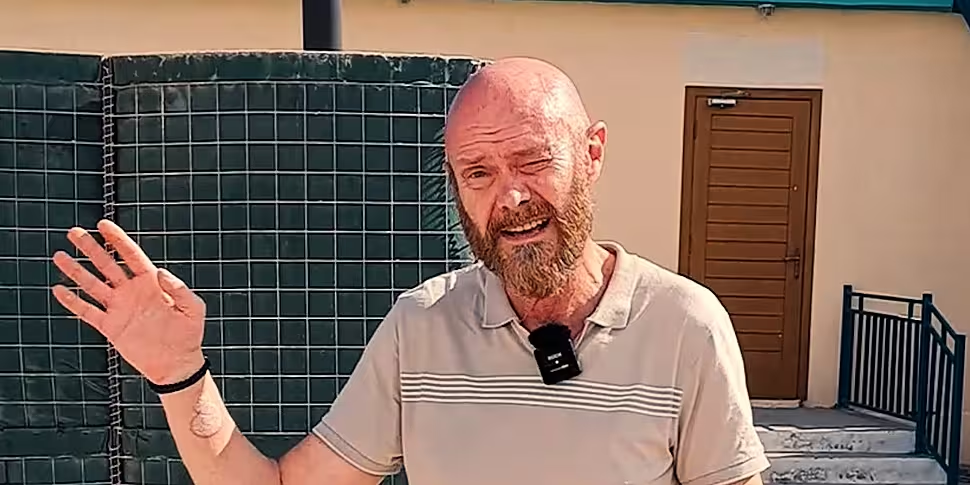Money that could be going to fund hospitals in Somalia is instead being spent on the war effort, according to one UNICEF spokesperson.
Newstalk host Sean Moncrieff has been spending this week with UNICEF staff in Somalia, where one year on from the worst drought in over 40 years the country continues to face severe challenges when it comes to feeding its people.
The United Nations was told last month that insecurity persists in Somalia, with extremist group Al-Shabaab and fighting in the Laascaanood region taking a heavy toll on civilians.
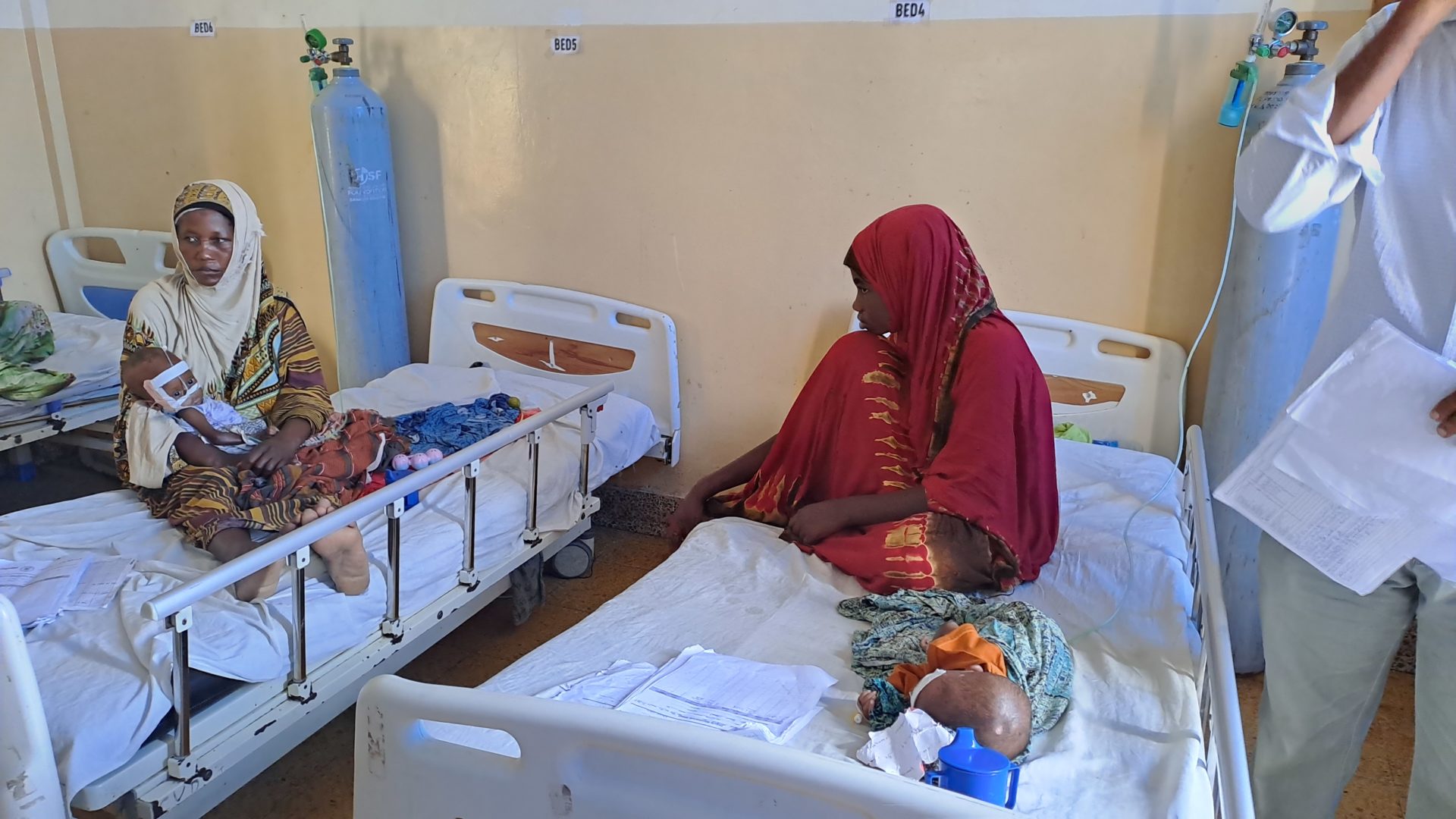 Mothers with their children at Banadir Hospital in Mogadishu, Somalia
Mothers with their children at Banadir Hospital in Mogadishu, SomaliaThe humanitarian situation remains deeply concerning, with nearly four million people facing hunger and about 1.2 million people displaced.
Last year saw the largest increase in civilian casualties there since 2017.
"Sadly, early data indicate a similar trend in 2023, with 1,289 civilian casualties recorded so far," UN Special Representative for Somalia Catriona Laing said.
Earlier this week, Sean visited a stabilisation centre at Banadir Hospital in Mogadishu, where women travel hundreds of kilometres on foot to get treatment for their malnourished children.
.@SeanMoncrieff has been spending this week with @Unicef staff in Somalia, a year after the worst drought in over 40 years.
He visited Banadir Hospital's stabilisation centre, where women travel hundreds of kilometres to get treatment for their malnourished children. pic.twitter.com/h1Vd9hyTP5— NewstalkFM (@NewstalkFM) November 16, 2023
Sean spoke with Dr Ibrahim Shilow, Health and Nutrition Coordinator with Concern, who said the hospital deals specifically with children.
"Especially here, it's a stabilisation centre, mainly hosting the children who have suffered malnutrition coupling with some complications," he said.
Sean was then introduced to a two-year-old girl in the critical unit at the hospital.
"The child has developed malnutrition, also developed pneumonia," Dr Shilow said.
"Our doctors say they are trying to manage the case, but the child has still little progress.
"There is no faster progress, but she said they are trying our best."
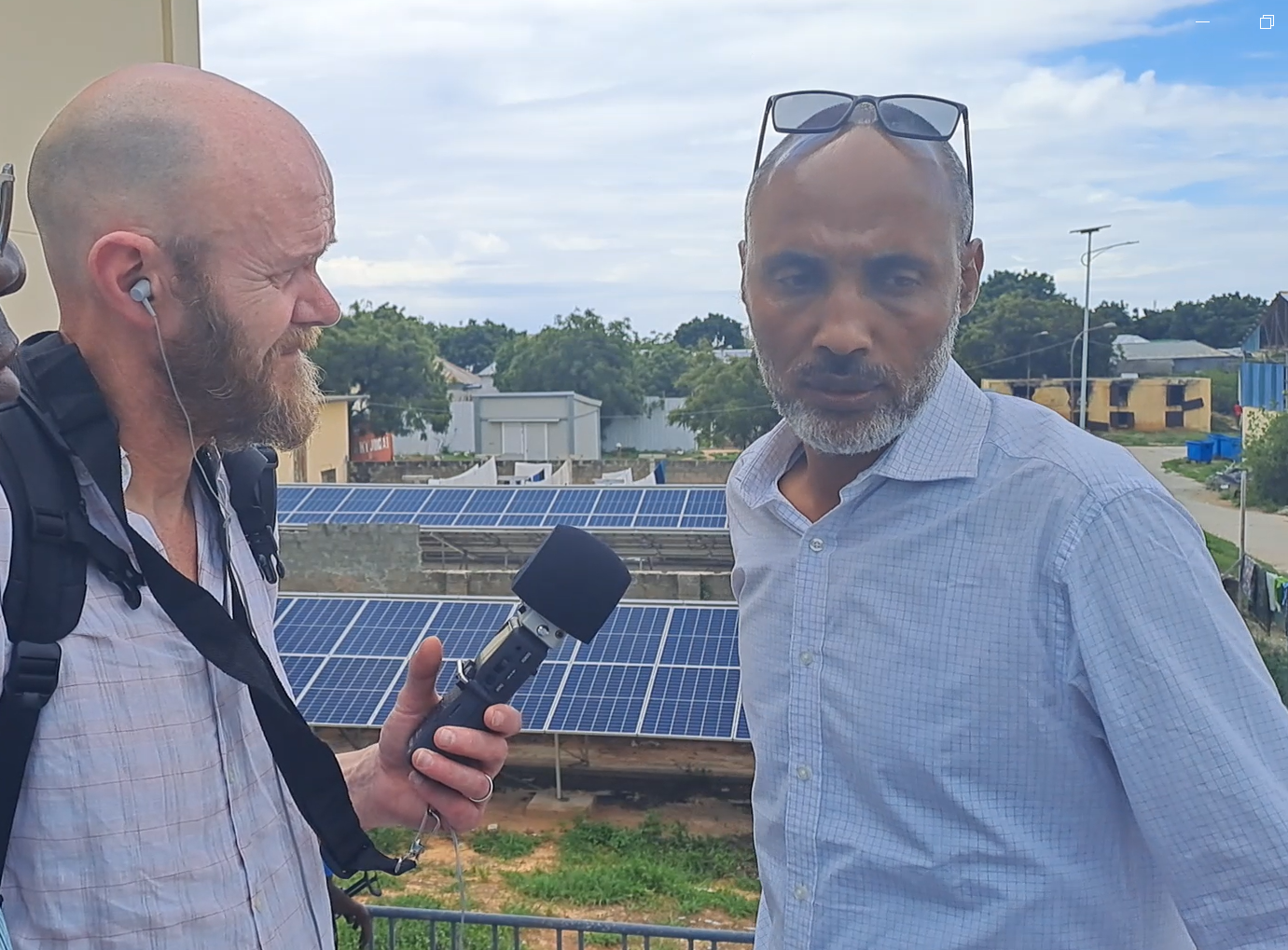 Sean Moncrieff talking with Dr Ibrahim Shilow. Image: Newstalk
Sean Moncrieff talking with Dr Ibrahim Shilow. Image: NewstalkSean asked the girl's mother how she got sick in the first instance, and Dr Shilow translated.
"The mother said firstly the child had not got breast feeding initially," he explained.
"So we have seen the child have to eat the soil... then she developed other complications."
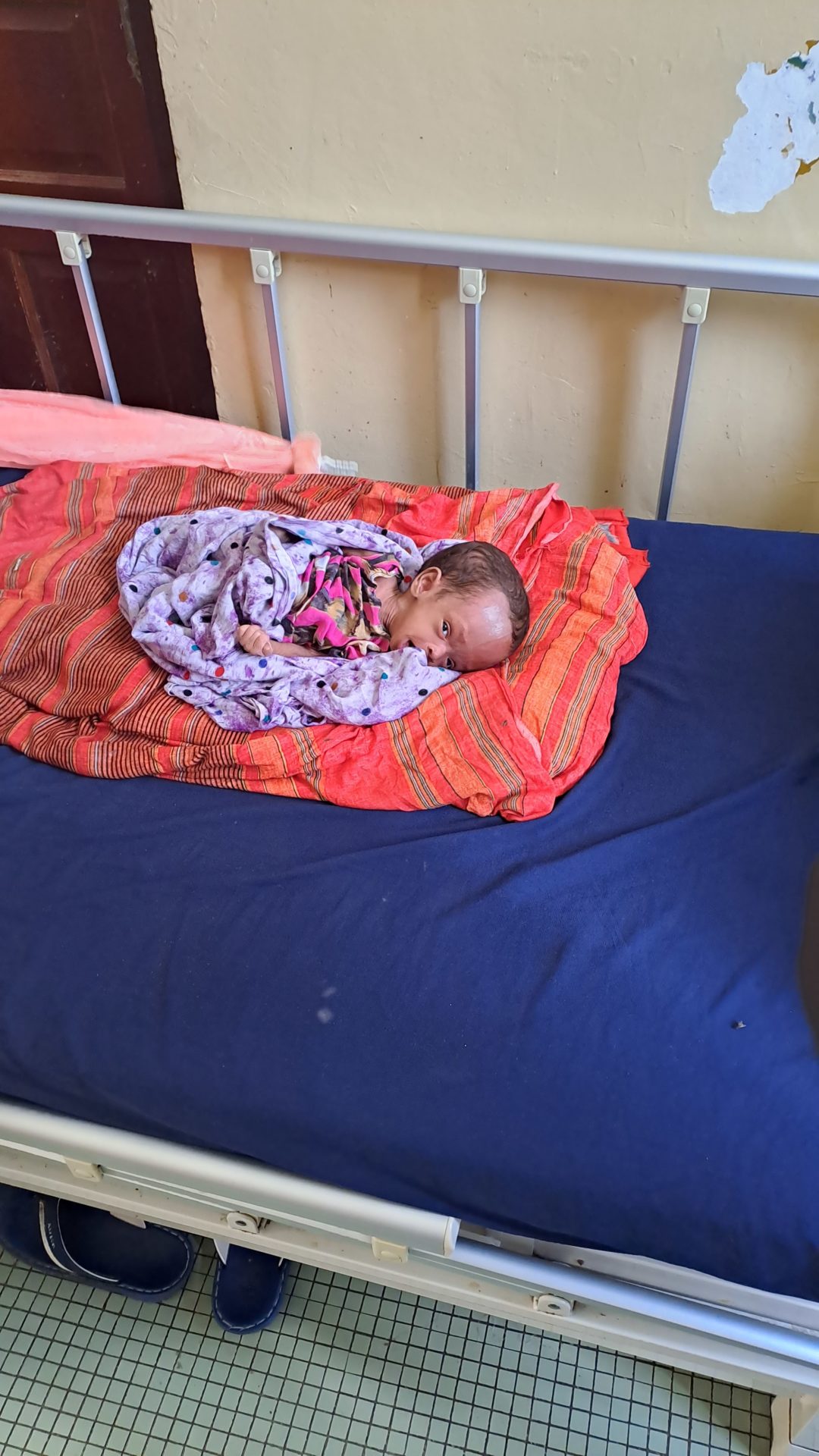 A baby at Banadir Hospital in Mogadishu, Somalia
A baby at Banadir Hospital in Mogadishu, SomaliaSean was then taken to see less critically ill children.
Dr Shilow outlined how long it can take to get from the critical unit to this one.
"It depends on the child's condition, and also how the recovery [goes]," he said.
"Mostly [it takes] seven to 11 days to recover.
"We have to look at the percentage of how many children are admitted and get recovery, and also how many are admitted and died here.
"Less than 10% is acceptable, mostly.
"Most of the children have recovered, but [in] some case unfortunately they die. But we are trying our best".
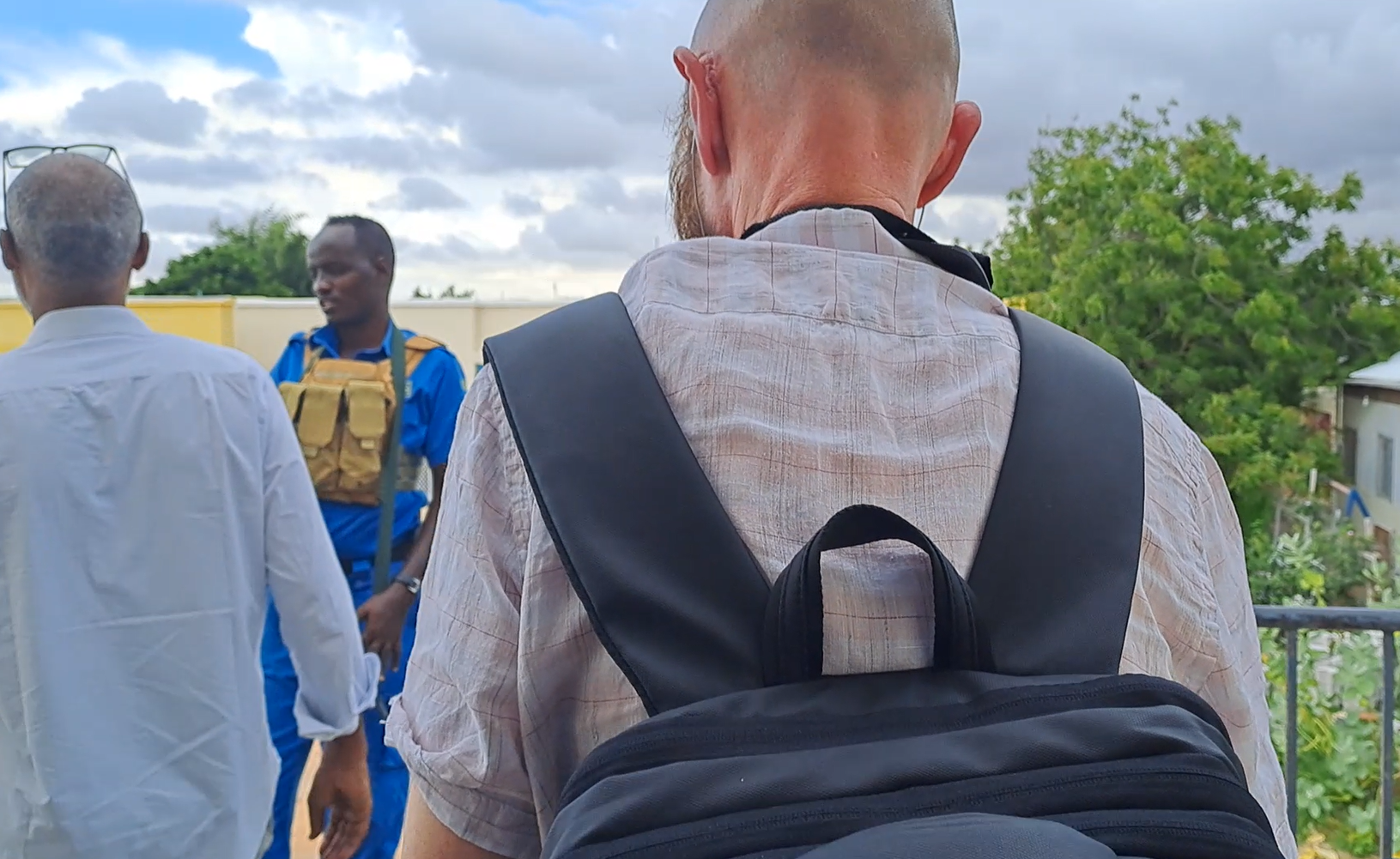 Sean Moncrieff talking a tour of the hospital with Dr Ibrahim Shilow. Image: Newstalk
Sean Moncrieff talking a tour of the hospital with Dr Ibrahim Shilow. Image: NewstalkDr Shilow said the hospital currently has 75 beds, with plans by UNICEF and Concern to add another new building.
Victor Chinyama, UNICEF Somalia Spokesperson, said children can become sick for any number of reasons.
"Most of these kids here have gone through a shock," he said.
"Maybe it's lack of food or disease, could be measles or diarrhoea or malaria.
"[This] then inhibits... their ability to consume, and that's the severe wasting within a very short period of time.
"They lose their body mass.
"The other type of malnutrition is chronic malnutrition called stunting, which means the child is too short for their age.
"The child may not be suffering from diarrhoea or things like that, but gradually over a period of time they're not growing robustly as they should".
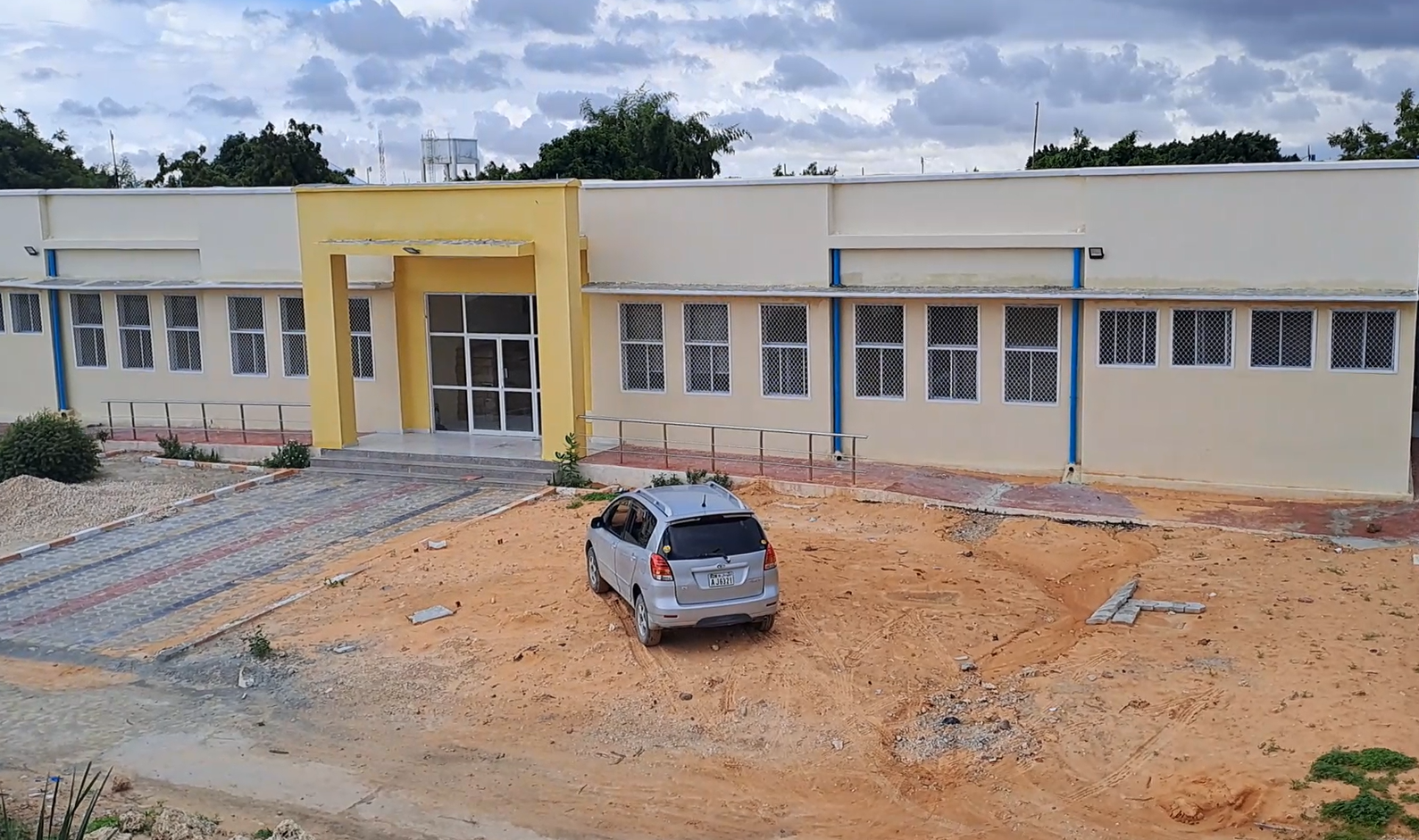 The new hospital building, supported by Concern and UNICEF. Image: Newstalk
The new hospital building, supported by Concern and UNICEF. Image: NewstalkMr Chinyama said funding remains a big problem.
"In an ideal world the [Somalian] government should actually be paying for the running costs, but it doesn't always happen like that," he said.
"The government budget only passed $1 billion for next year... and this is a government that is at war.
"So the defence budget is going towards feeding the troops, giving them weapons and boots and uniforms and so on.
"So this is kind of left to the donors," he added.
Mogadishu's Banadir Hospital - which is supported by Concern and UNICEF - is Somalia's largest paediatric stabilisation centre.


